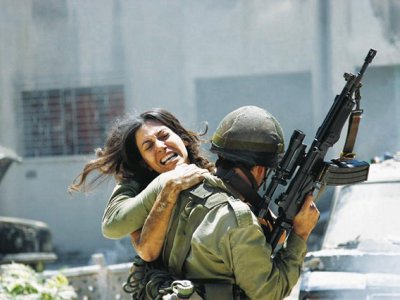
LEBANON
Two inventive films about the 1982 war in Lebanon remind us how high the stakes remain today
As people pray for fruitful developments in the new round of talks between Israel and the Palestinians it is naïve to assume that securing a viable nation-state for the Palestinians within identifiable borders will usher in a new era of peace. For the suffering people of the Middle East, a broader perspective is required – one that takes a realistic view of the poor maligned country of Lebanon.
Few nations have endured as much external intervention in its affairs as Lebanon. Syrian foreign policy has tended to see it as an extension of its own nation; Israel has ventured several times into the country to attack those it feels threatens its security; Iran, via its Shi’ite proxy Hizbollah has helped to create a State within a State that confused so many people who tried to understand the narrative behind Israel’s war on the country in 2006. Lebanon is the doormat of the Middle East.
Even if Mahmoud Abbas and Benjamin Netanyahu were able to forge a peace that gave the Palestinians their own State and resolved the problem of Jewish settlers, Palestinian rights of return and the status of Jerusalem (an incomparable wish list in itself), there would still not be peace in the Middle East. It is sometimes mistakenly believed that the bitter relationship between these two sides is the only impediment to Israel living in harmony with its Muslim neighbours. Yet for three decades Israel has conducted a shadowy and dangerous cold war with its implacable foe Iran, controlled by the most openly antisemitic government since the Third Reich. This covert war would continue.
The invasion of Lebanon by the Israeli Defence Force in 1982 marked a critical change in the way the nation was viewed internationally. In 1967 and – to a lesser extent in 1973 – Israel was perceived to be the plucky underdog, surrounded by hostile regimes bent on its destruction. It is hard for people saturated with today’s western media to understand it, but Israel was once a leftist cause of radical chic. The 1982 war, Israel’s terrible siege of Beirut in pursuit of the PLO and its awful complicity in the Falangist massacres in the Palestinian refugee camps of Sabra and Shatila contributed to a shift in popular opinion.
Two remarkably inventive war films have given illumination to this war. The first, Waltz with Bashir, is an animated picture which gives voice to a soldier who fought in the war but has no memory of it. Using his friends to prompt him, the soldier starts to recover the images that his mind has suppressed. The film ends with real life footage of Palestinian women wailing for their loved ones who were murdered under Ariel Sharon’s artificial lighting. By contrast, Samuel Maoz’s study of the war, Lebanon, is confined with unbearable claustrophobia to the inside of a tank. To experience the effects, it is best to darken the room you are watching it in and get a feel for the unanticipated vulnerability of those who serve inside a tank.
Maoz, himself a gunner in the Israeli tank corps, had similarly buried his experiences as a way of dealing with them until the 2006 war with Hizbollah compelled personal confrontation with the ‘thirty days of hell’ he spent inside a tank in Lebanon in 1982. Some may choose to dismiss the metaphor the tank supplies of an Israel that looks steely and impregnable on the outside but which is populated by deeply fearful people, yet his art achieves the same kind of impact on land that Das Boot (directed by Wolfgang Petersen) made under the sea, leaving you gasping for light and air. I had a renewed appreciation for my personal well-being, emerging from an art house cinema in South London.
In a recent report, the non-governmental organisation, International Crisis Group (ICG) observed that the next conflict over Lebanon could escalate into a broader regional war that would be ‘uncontrolled, unprecedented and unscripted’. For this reason alone, all sides have shown restraint recently, but there is a desperate need to address the peace in Lebanon, drawing in the three rival powers of Israel, Syria and Iran with its proxy Hizbollah.
I hope and pray – and honestly feel – that Israel and Palestine will one day co-exist, messily but peacefully, on the same small strip of land. I am much less sure about the wider question that Lebanon embodies. Speaking for the ICG, Robert Malley said ‘the world should cross its fingers that fear of a catastrophic confrontation would continue to be reason enough for the parties not to provoke one.’
When you close this screen, perhaps you could go one better than crossing your fingers and pray to the God for whom the nations are but a drop in the bucket, that he would show mercy on the weak and vulnerable by getting regional political players finally to look one another in the eye across a table where they can talk.
POPULAR ARTICLES

Obama's Covert Wars
The use of drones is going to change warfare out of all recognition in the next decades.

Through A Glass Starkly
Images of traumatic incidents caught on mobile phone can be put to remarkable effect.

What Are British Values?
Is there a British identity and if so, what has shaped the values and institutions that form it?


